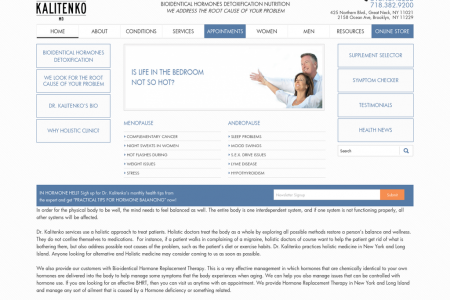
Counselling Or Coaching?
COUNSELLING Or COACHING How counselling and coaching differ in their approach to helping people address issues in their lives. COUNSELLING COACHING PRIMARY FOCUS Focuses on what client wants to Focuses on a person's present, in order to help them create actionable strategies for achieving specific goals. The emphasis is on action and accountability. A coach may chase and check up on achieve in life now. Will address past in order to understand and remove its capacity to negatively affect progress. Works at pace tailored to suit client's learning style. progress. TRAINING REQUIRED A minimum of 4-5 years training to qualify. Anything from 3 to 9 months to qualify. ACCOUNTABILITY Qualified counsellors and psychotherapists must be registered with a UK recognised governing body that monitors good practice and safeguards clients. The largest are: UKCP, CPC, BACP. There is no nationally recognised governing body. Anyone can call themselves a coach and work with people. The client has no recourse if they have concerns about a coach's ethical practice. EVIDENCE FOR EFFECTIVENESS There is a considerable body of recognised scientific evidence which demonstrates that psychotherapy is effective in treating a range of issues in particular: psychological wellbeing, depression, anxiety, stress, relationships, work, self-confidence. Coaching is still relatively new. There is little recognised evidence for the effectiveness of coaching. Some studies conducted by coaching organisations indicate it is helpful in the workplace for; performance, career development and team building. ISSUES TREATED Anxiety, Depression, Relationships, Stress Management, Career development, Work issues, Self-Confidence, Self-Esteem, Life Purpose, Bereavement, Trauma, Abuse, Addiction, Fertility. Personal Development Career development Business Development Executive Coaching for Individuals Teams or Organisations Sports coaching. WHERE THEY EXCEL Excel in helping you build personal and psychological wellbeing and confidence, overcome blocks to success, particularly deep rooted blocks that coaches are not trained Excel in providing strategies and exercises that can help you clarify goals and the steps needed to achieve them. to address. WHERE THEY FALL SHORT Old school therapies, which focus too much on the past can frustrate some clients. Some newer therapies can be more interactive and future focused (see Different Approaches below) Coaches are not trained in helping people overcome blocks to success that are deeply rooted and often refer clients to psychotherapy, to address such issues. CLIENT LIKES Greater self-awareness, achievement of personal goals, improvements in happiness, wellbeing. Increased confidence and ability to address future challenges effectively. Achievement of goals, skills and strategies learnt which improve working relationships, increase confidence and performance at work and can be used in future. CLIENT DISLIKES Some clients find therapy approaches where the therapist does not say much, very uncomfortable - this style can be present in "old school" therapies such as psychodynamic or psychoanalytic Clients report some coaches are too pushy and do not fully understand the blocks which make the client unable to take action or feel motivated. This can be unnecessarily shaming for clients. KEY TO SUCCESS Find a therapist that really "gets you". In the first meeting you want to feel they can help you achieve the outcome you want. If you don't get that feeling, check out the next Find a coach that really "gets you". In the first meeting you want to feel they can help you achieve the outcome you want. If you don't get that feeling, check out the next person. person. DIFFERENT APPROACHES Newer Pro-active Types: Solution Focused Therapy, Cognitive Behavioural Therapy (CBT), Integrative Psychotherapy, Transactional Analysis, Gestalt. Old School Therapies: Psychodynamic, Psychoanalytic. Solution Focused Coaching Values Based Coaching Non Directive Coaching Directive Coaching Content Focused Coaching Goal Focused Coaching Neuro Linguistic Programming (NLP) coaching MODES OF PRACTICE Most commonly face to face meetings, weekly, fortnightly or ad hoc. Also available via Skype, telephone and email. Most commonly by telephone, also face to face meetings, Skype and email. SESSION FREQUENCY Most commonly weekly sessions. Also do fortnightly and ad hoc appointments. May be once a week or a month or ad hoc when needed. RATE OF CHANGE The speed within which change occurs depends on the complexity of the problem being addressed. Success can be achieved within 3 to 6 sessions on specific issues, more complex issues can take 12, 24 or longer depending on client's desired level of change. Coaching aims to facilitate clients to achieve change quickly because the problems it tackles are straightforward. Success can be achieved within 6 to 12 sessions, some clients work for years with a coach. For complex issues coaches may refer clients to counselling or psychotherapy to help them unblock their potential. 31 TREATMENT OF THE PAST Understand how past affects present and how to change negative effects - fully trained to address the past. Understanding the past in the context in which future goals are set - limited training in addressing impact of past. CHANGING STRATEGIES Therapist helps client: clarify goals, understand blocks to achieving them, recognise how roots of unhelpful habits interfere with progress, provide/identify alternative strategies where useful. Coaches have a range of questions to help client understand blocks to success and develop strategies to move forward. STYLE Collaborative, goal focused, educational, intuitive, challenging when appropriate. Collaborative, goal focused, challenging, chase up on progress and tasks set. SOURCES http://www.bacp.co.uk/research/resources/ http://counsellingresource.com/lib/therapy/types/effectiveness/ http://www.barrymcinnes.co.uk/what-works-evidence-research/getting-better-outcomes http://literacy.kent.edu/coaching/information/Research/NHS_CDWPCoachingEffectiveness.pdf http://www.kornferryinstitute.com/sites/all/files//documents/briefings-magazine-download/The%20Effectiven ess%20of%20Executive%20Coaching-%20What%20We%20Can%20Learn%20from%20the%20Research%20Lite rature%20.pdf Infographic by KlearMinds Counselling - Coaching - Psychotherapy www.klearminds.com
Counselling Or Coaching?
Source
http://www.k...fographic/Category
HealthGet a Quote











